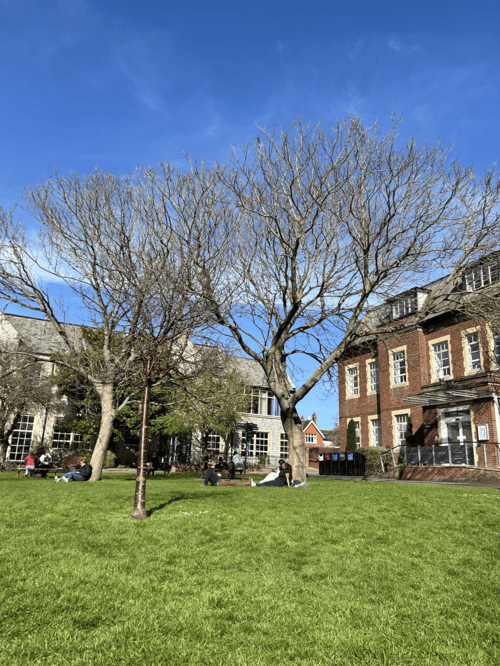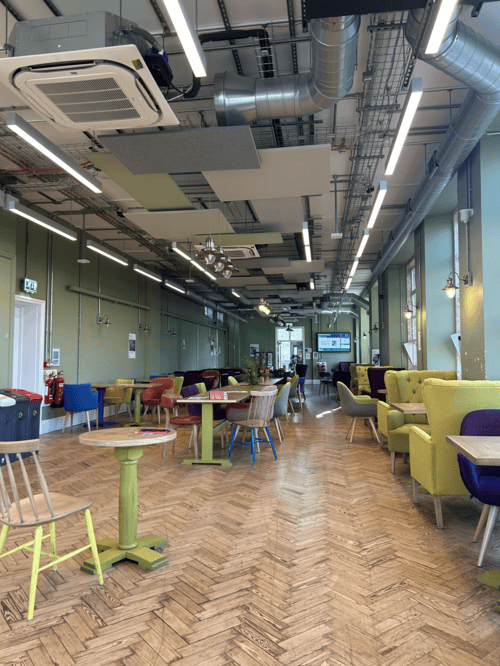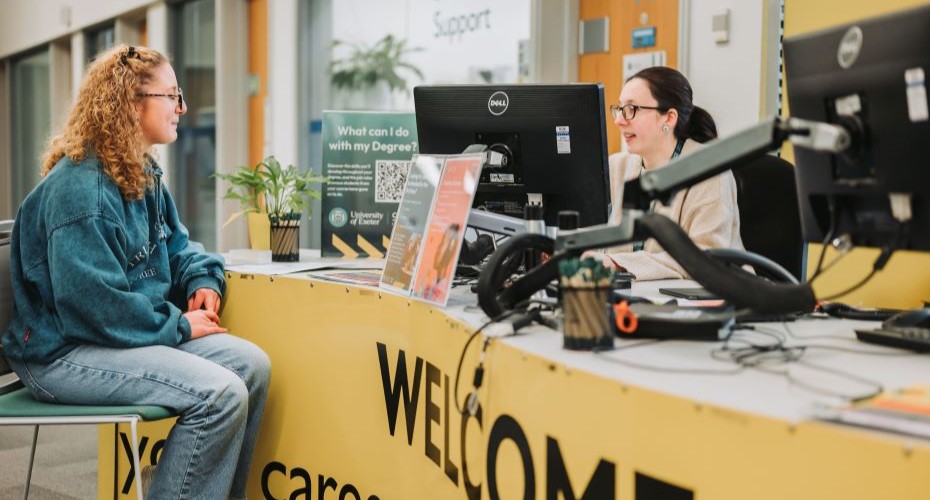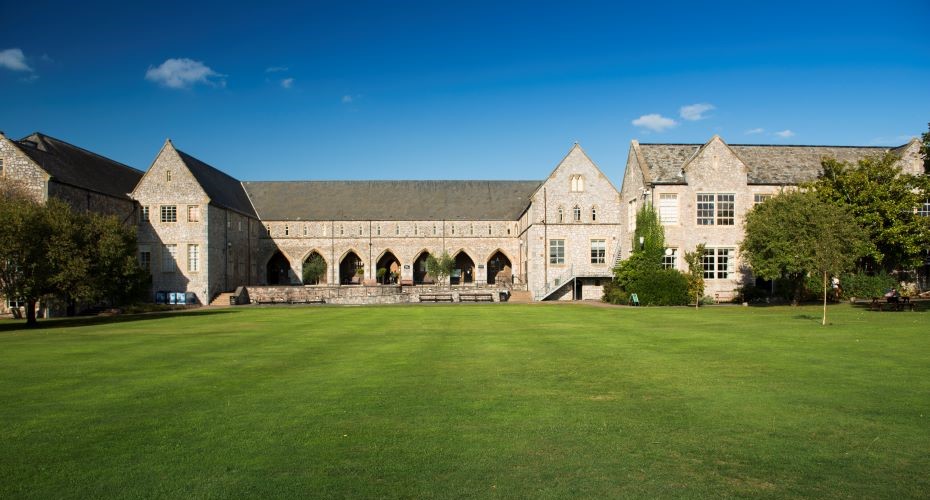Hey everyone! I’m Zara, a final year psychology student. As an almost graduate, I have suddenly discovered so many resources at the University of Exeter that I didn’t think to access sooner, and I am totally kicking myself for it now! I don’t want any of you to be in my shoes, so I have made a list of lots of the miscellaneous supportive things the University does that I really wish I would have taken advantage of sooner. All of these are totally free and totally helpful.
Library support

The library isn’t just a place to find books and study – it also does so much other stuff behind the scenes, it’s unbelievable really. Firstly, both St. Luke’s (been my favourite study space as of late) and Streatham have days where the library has free hot drinks and snacks, and there is a member of the library support team there to answer any of your questions. If you aren’t sure about referencing or how to format a paper or whatever else it may be, that is what they are there for! They’re like academic support signposts.
The library also has a fantastic online search service where you can access any paper or book you need virtually or in person. I have needed to access many a research paper in my time, and the library always has what I need on the website AND in-person copies of textbooks if I feel like that’d suit me better. There are online versions of all the textbooks I have personally needed, and even if you are in a degree like law where resources aren’t always online, it’s super easy to navigate to the physical copy of the resource you need and ask for help if you get stuck. There are staff there morning to evening every weekday and they are super friendly and happy to help.

Another thing the library provides is study skills support, where you can find lots of online recourses on, or book appointments to talk to someone about, well, study skills. This could be note-taking, time management, essay writing, reading, summarising, whatever. It can feel like as a student you should already know those things, but this is just not true! I know so many people who have never had to use these skills through school and learning them can be hard to navigate. The University understands this: they know that this is the first time many students will have total agency and control over their own schedules and life and it’s easy to procrastinate. If you aren’t sure about 1 on 1 support, Exeter also offer webinars and workshops on things like writing, reading and the dreaded dissertation. Anybody can access this support and it’s suitable for every degree.
Subject-specific support
I obviously will mostly have expertise in my subject area (psychology), but I have also spoken to friends in law, biology, history, physics, computer science and so many more, and every subject seems to have some really cool services and support they provide. Psychology students notoriously hate statistics – for many of us it’s just not our cup of tea – but the faculty knows this and makes sure to provide so much extra support. There were 2 hour-long weekly drop-ins with PhD students, discussion forums online, office hours for all the statistics professors, tutorials, and lectures. I always felt I knew where to look if I needed support. Even for things easier than stats, professors always reply to emails on time and provide office hours if we ever just want to talk through something. I have always had great experiences; I have absolutely loved working with my third-year dissertation supervisor, and I couldn’t have felt more supported if I tried. Psychology also offers some inclusion café sessions, which are an open space to discuss the inclusion of under-represented groups in the faculty, which is really cool! The same can be said for other faculties, I know physics does a physics breakfast morning some days of the week, and law offers lots of contact hours and additional support.

There’s also the Students’ Guild who do so many community activities or just niche crafts and mindfulness activities every single week. I saw a tote bag decorating session that was totally free with food last week at St. Luke’s Campus! I, unfortunately, was on the dissertation grind and had to force myself to lock in, but those mindfulness activities or just community activities are so important, and I wish I’d attended more in my first and second year. How many times in life will you have the chance to try those niche activities like resin pouring, flick book animation, scratch art or even just a yoga class, movie night with snacks or a pampering night completely for free! The Guild also does activities like minigolf on the Magnolia Lawn, bringing in lamas to pet (random, I know), and bringing in Ted the therapy dog and some of his therapy dog friends every week to say hello to us stressed-out students. Sometimes I wonder if Ted knows how many people procrastinate on an essay to give him pats. I cannot believe the sheer number of things going on every single week on campus that people can do FOR FREE! You can find all of this on the Guild’s Instagram page or the website.
Next: internships, internships, internships! Many science subjects have sooooo many research internships going during the summer which is amazing for people like me and my BSc pals who want a leg up on the experience ladder (I just joined LinkedIn, and I now feel the need to do every internship under the sun). To apply for these, I had to write soooo many applications and felt totally lost before starting, so I booked a few calls with the Career Zone team. It was amazing, I had someone look at my CV, tell me what to do to clean it up and then look at my application for a specific internship, read the whole thing and give me detailed feedback. It was so helpful, especially because I am so busy and it can be so overwhelming to figure out the world of internships and jobs on your own. The careers team offer support for anything from a CV to a cover letter to finding internships, work placements or even part-time jobs. They also run University events like Grand Challenges, which is an event where you sign up, get put in a group and solve a global problem, which gives you impressive experience and skills to pop on your CV.

And finally, the University’s postgrad pathways. Applying for a postgrad degree is fast-tracked if you are a final-year student at Exeter looking to do further study, which is super handy. I live with people doing a postgraduate in teaching, I know other people doing their Masters at Exeter. It’s quite common to stay here after third year, and the University makes that really easy to navigate. There is also a 20% discount too for returning students which is great! Applying for a postgrad whilst doing the final year of your degree can be intense, so it is helpful that the path to continue studying at Exeter is crystal clear.
If I could do it all again, I’d use the library skills support a lot more, go to more of my subject-specific activities like the café and network more, obviously pat Ted more, go to more Guild events and more meetings with the Career Zone to discuss what I was thinking in terms of careers. There are an incredible number of support services to benefit from here in Exeter and if you ask for help, it’ll be there for you!

